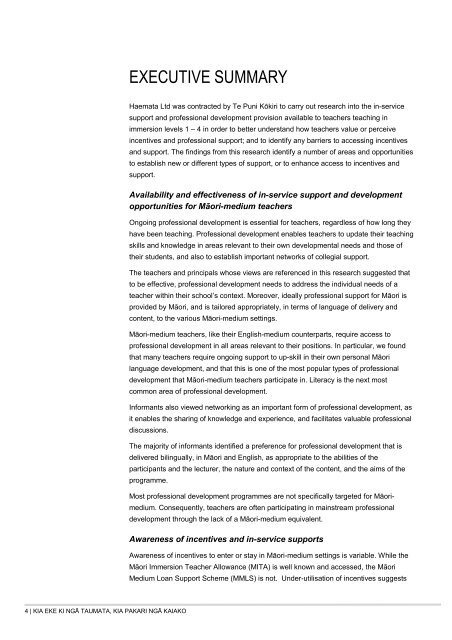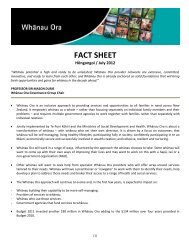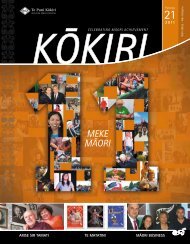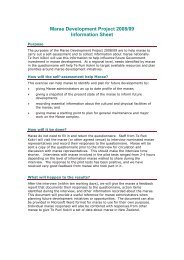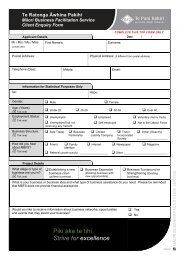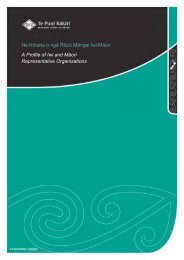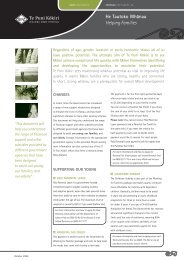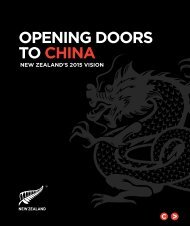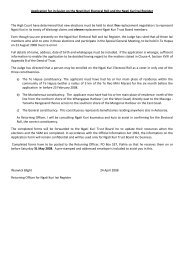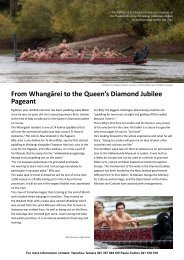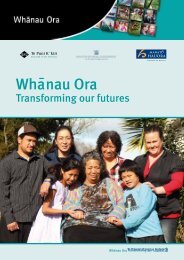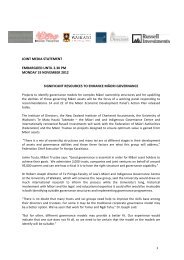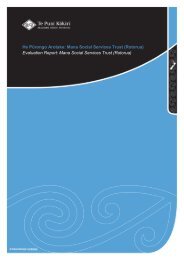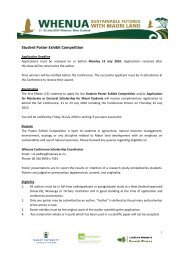Kia eke ki ngÄ Taumata, kia Pakari ngÄ Kaiako He ... - Te Puni Kokiri
Kia eke ki ngÄ Taumata, kia Pakari ngÄ Kaiako He ... - Te Puni Kokiri
Kia eke ki ngÄ Taumata, kia Pakari ngÄ Kaiako He ... - Te Puni Kokiri
Create successful ePaper yourself
Turn your PDF publications into a flip-book with our unique Google optimized e-Paper software.
EXECUTIVE SUMMARYHaemata Ltd was contracted by <strong>Te</strong> <strong>Puni</strong> Kō<strong>ki</strong>ri to carry out research into the in-servicesupport and professional development provision available to teachers teaching inimmersion levels 1 – 4 in order to better understand how teachers value or perceiveincentives and professional support; and to identify any barriers to accessing incentivesand support. The findings from this research identify a number of areas and opportunitiesto establish new or different types of support, or to enhance access to incentives andsupport.Availability and effectiveness of in-service support and developmentopportunities for Māori-medium teachersOngoing professional development is essential for teachers, regardless of how long theyhave been teaching. Professional development enables teachers to update their teachings<strong>ki</strong>lls and knowledge in areas relevant to their own developmental needs and those oftheir students, and also to establish important networks of collegial support.The teachers and principals whose views are referenced in this research suggested thatto be effective, professional development needs to address the individual needs of ateacher within their school’s context. Moreover, ideally professional support for Māori isprovided by Māori, and is tailored appropriately, in terms of language of delivery andcontent, to the various Māori-medium settings.Māori-medium teachers, like their English-medium counterparts, require access toprofessional development in all areas relevant to their positions. In particular, we foundthat many teachers require ongoing support to up-s<strong>ki</strong>ll in their own personal Māorilanguage development, and that this is one of the most popular types of professionaldevelopment that Māori-medium teachers participate in. Literacy is the next mostcommon area of professional development.Informants also viewed networ<strong>ki</strong>ng as an important form of professional development, asit enables the sharing of knowledge and experience, and facilitates valuable professionaldiscussions.The majority of informants identified a preference for professional development that isdelivered bilingually, in Māori and English, as appropriate to the abilities of theparticipants and the lecturer, the nature and context of the content, and the aims of theprogramme.Most professional development programmes are not specifically targeted for Māorimedium.Consequently, teachers are often participating in mainstream professionaldevelopment through the lack of a Māori-medium equivalent.Awareness of incentives and in-service supportsAwareness of incentives to enter or stay in Māori-medium settings is variable. While theMāori Immersion <strong>Te</strong>acher Allowance (MITA) is well known and accessed, the MāoriMedium Loan Support Scheme (MMLS) is not. Under-utilisation of incentives suggests4 | KIA EKE KI NGĀ TAUMATA, KIA PAKARI NGĀ KAIAKO


